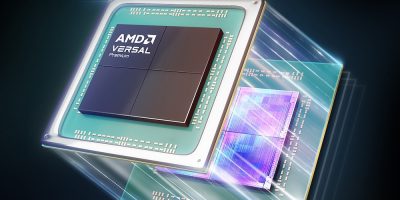Versal Premium VP1902 is largest FPGA-based adaptive SoC, says AMD
AMD said that the Versal Premium VP1902 is the world’s largest FPGA-based adaptive SoC for emulation and prototyping. It offers twice the capacity of earlier generation FPGAs said the company.
The VP1902 adaptive SoC is an emulation-class, chiplet-based device designed to streamline the verification of increasingly complex semiconductor designs. Designers can use it to innovate and validate application-specific integrated circuits (ASICs) and SoC designs.
FPGA-based emulation and prototyping allows fast silicon verification and enables developers to begin software development in advance of silicon tape-out.
As complexity grows in ASIC and SoC designs, coupled with the rapid advancement of AI and ML-based chips, extensive verification of both silicon and software before tape-out is a must, said AMD. The VP1902 delivers 18.5M logic cells for 2X2 higher programmable logic density and 2X4 aggregate I/O bandwidth compared to the previous generation Virtex UltraScale+ VU19P FPGA.
For both pre-silicon verification and concurrent software development, the VP1902 finds and addresses bugs before tape-out. The Versal architecture, including the programmable network-on-chip, provides up to 8X5 faster debugging compared to the prior generation VU19P FPGA.
The AMD Vivado ML design suite provides a comprehensive development platform to quickly design, debug and validate applications and technologies to accelerate time to market. New features that support more efficient development on the VP1902 adaptive SoC include automated design closure assistance, interactive design tuning, remote multi-user real-time debugging and enhanced back-end compilation, which enables end users to iterate IC designs faster, said the company.
AMD has collaborated with EDA vendors, including Cadence, Siemens and Synopsys to help designers access an ecosystem of fully-featured and scalable solutions.
The AMD Versal Premium VP1902 adaptive SoC will begin sampling in Q3 to early access customers with production expected in the first half of 2024.
Kirk Saban, corporate vice president, Product, Software, & Solutions Marketing, Adaptive and Embedded Computing Group, AMD, commented: “Chip designers can confidently emulate and prototype next-generation products using our VP1902 adaptive SoC, accelerating tomorrow’s innovations in AI, autonomous vehicles, Industry 5.0 and other emerging technologies.”




